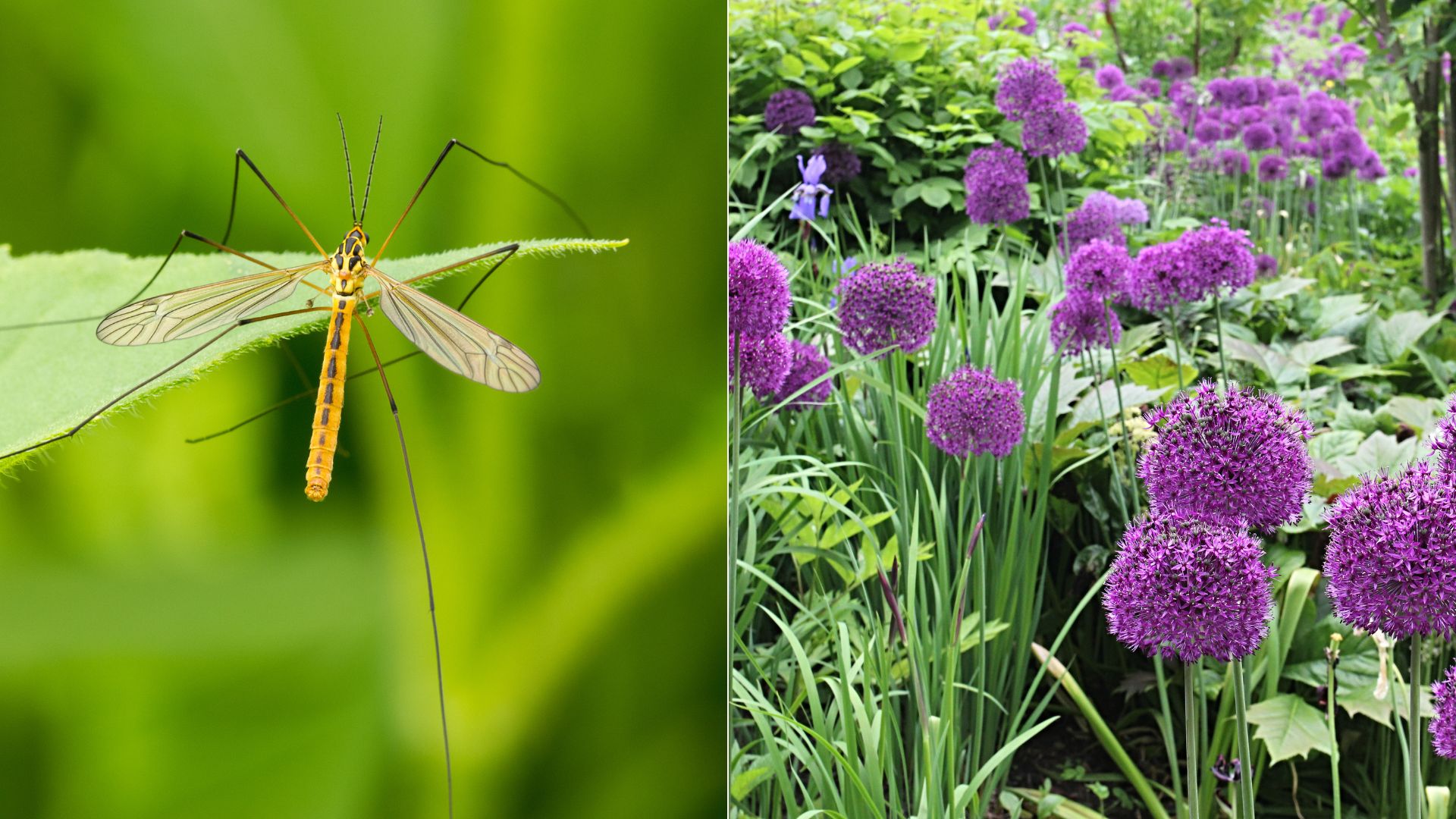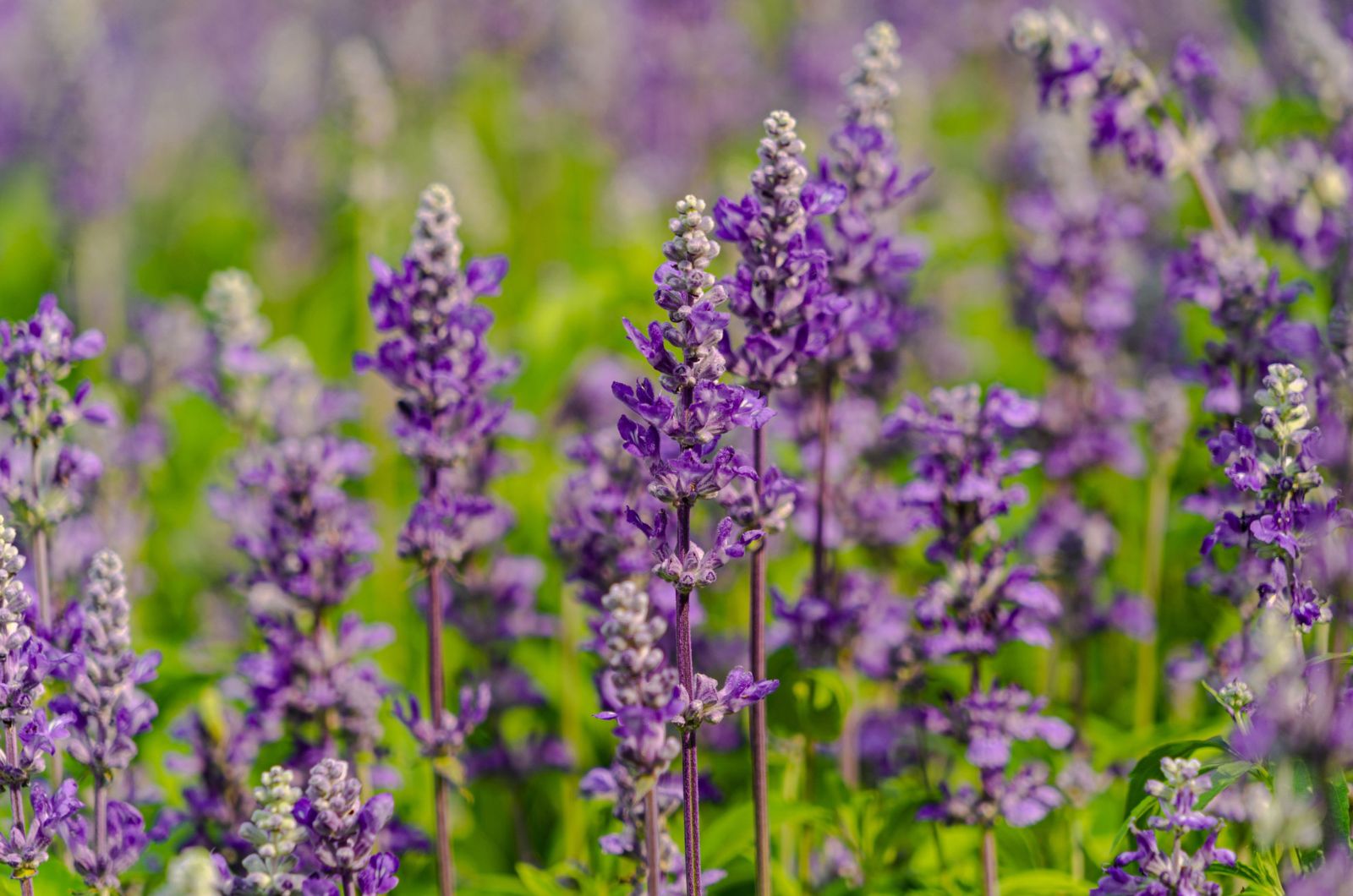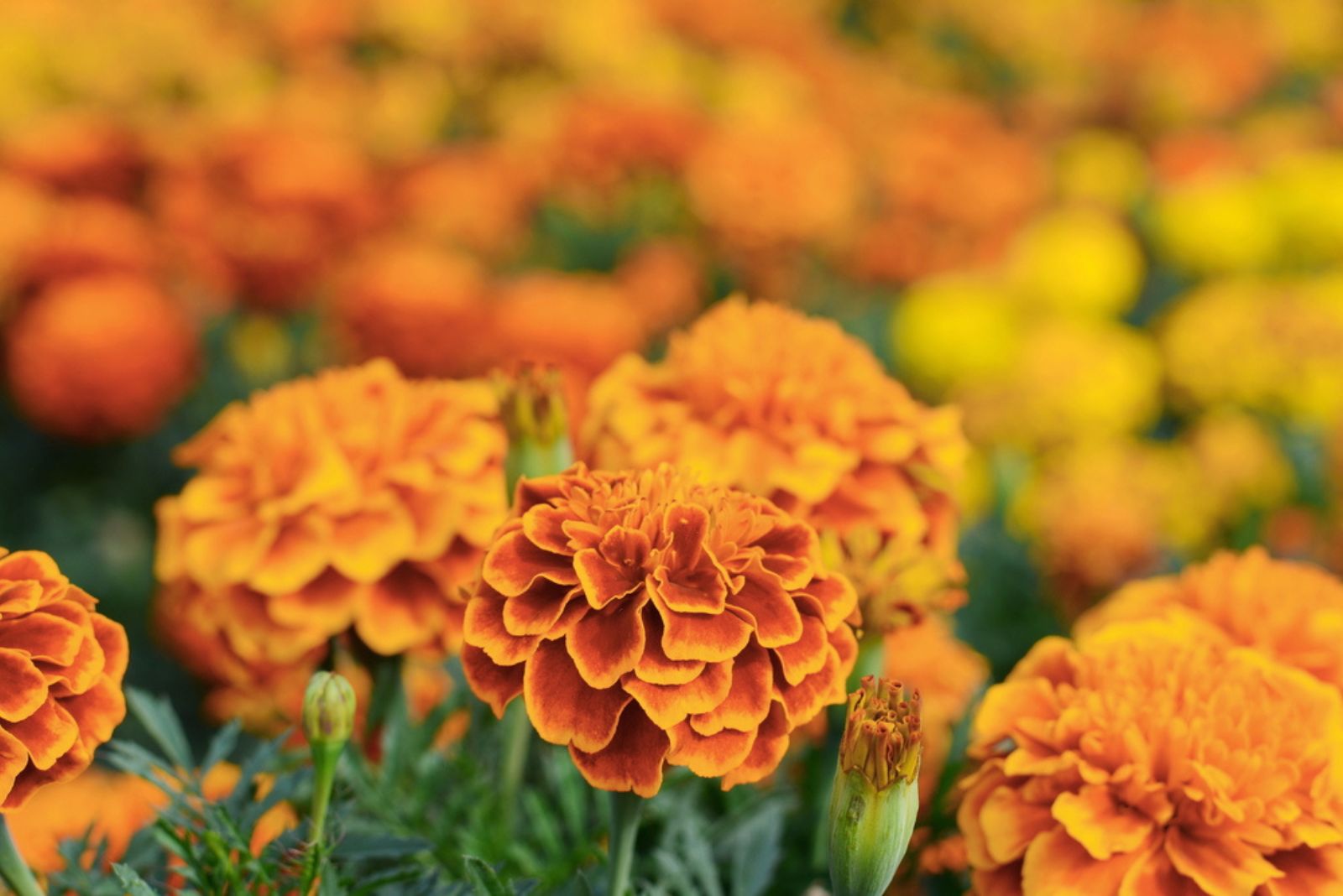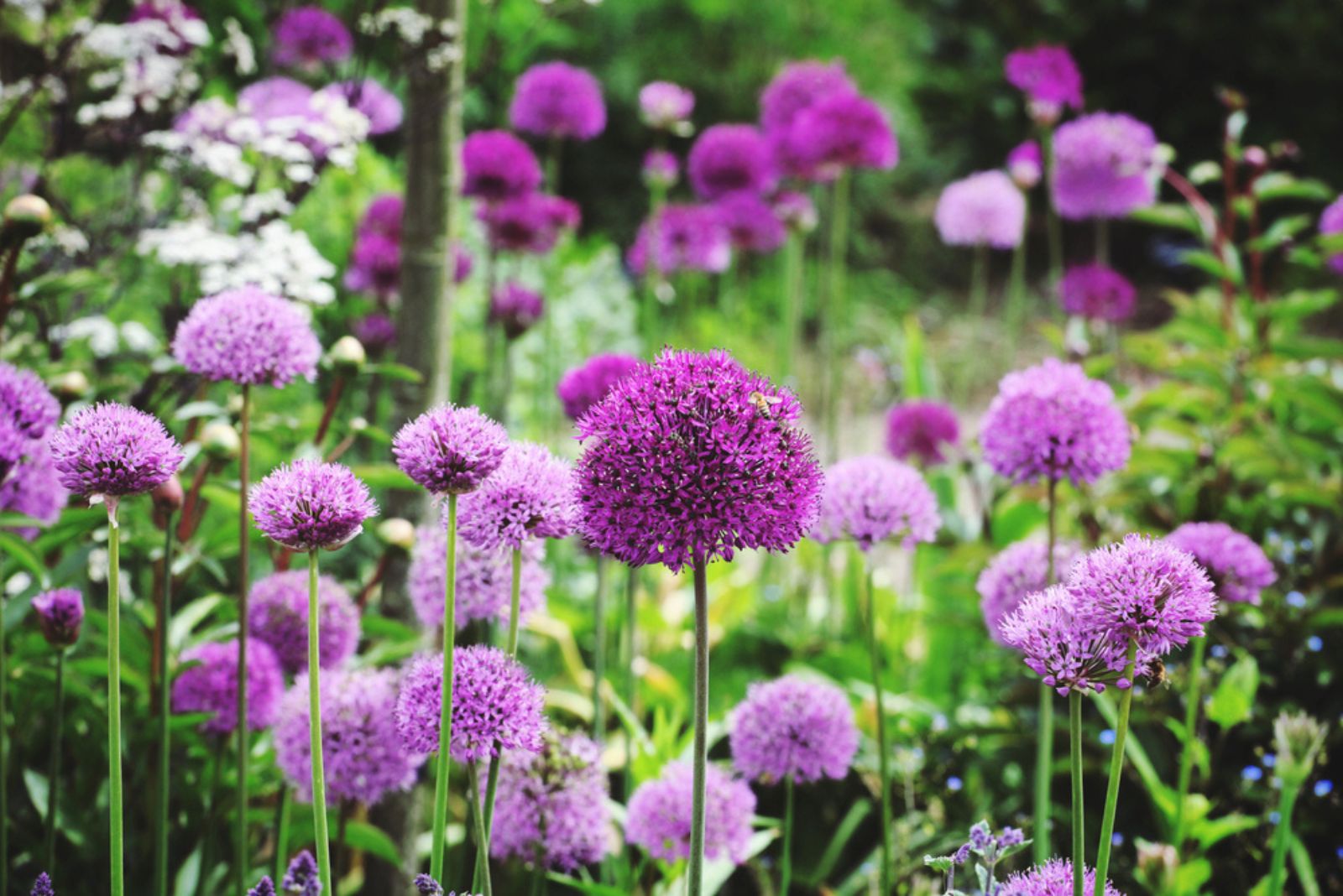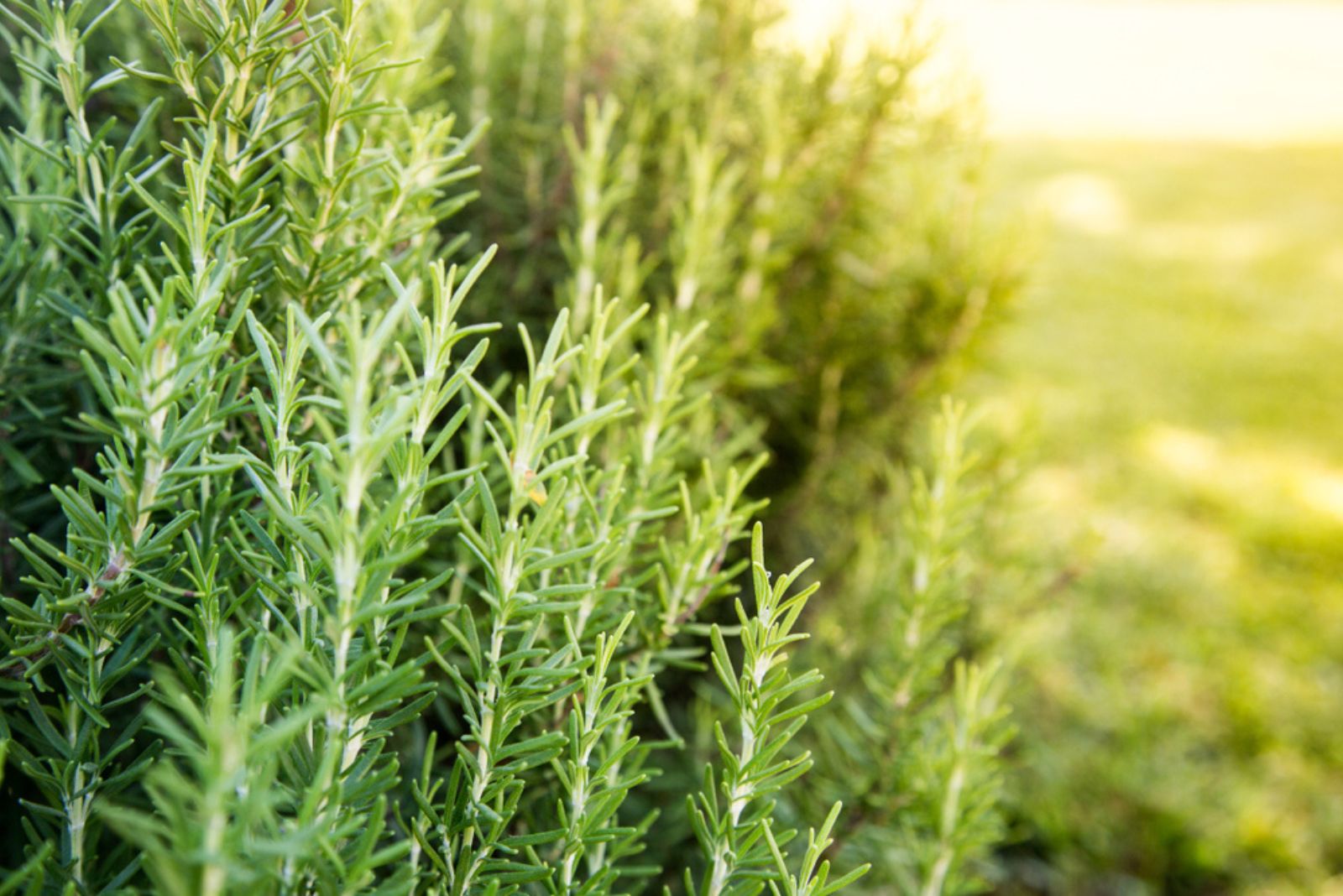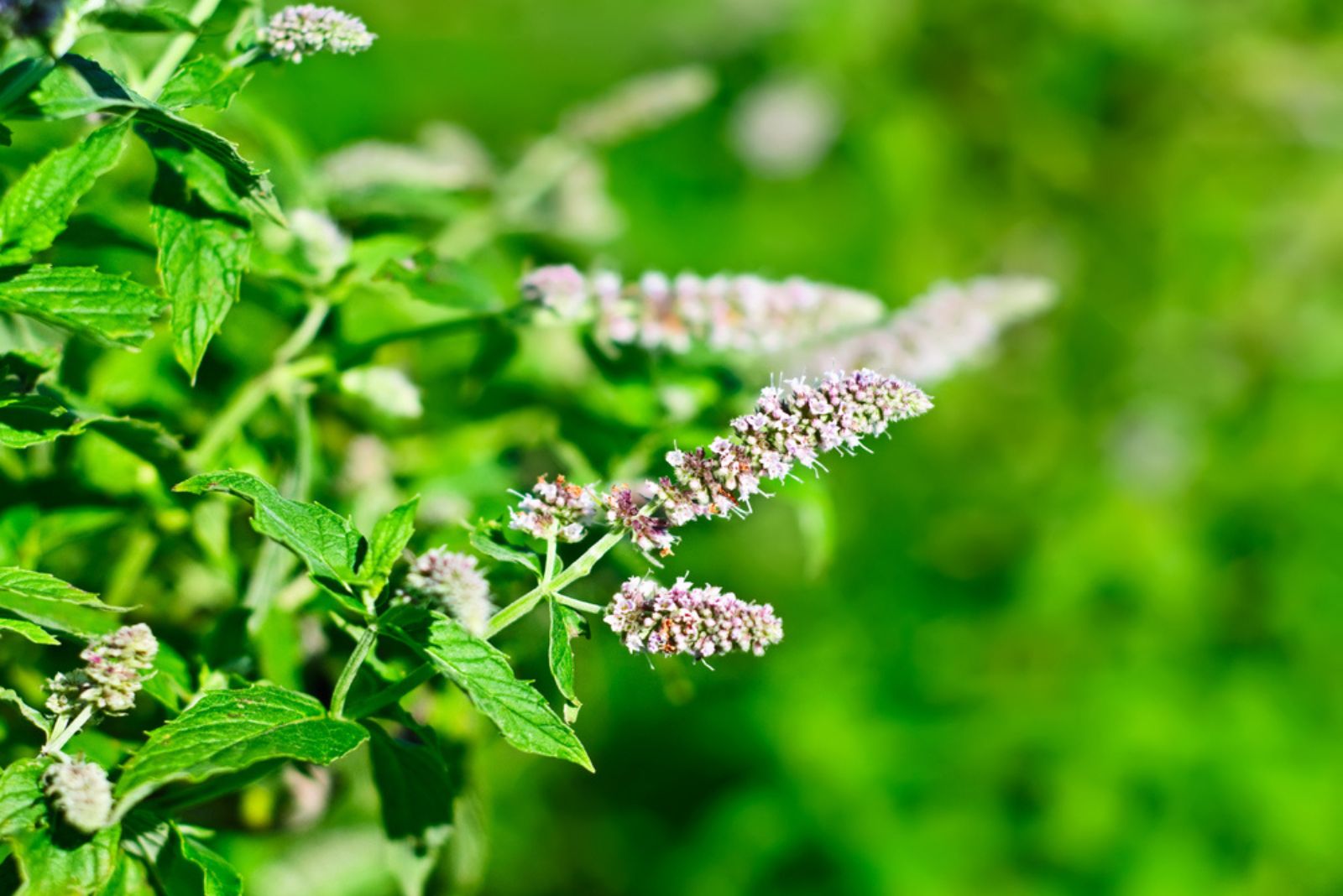Is there anything more annoying than mosquitoes in the summer? They just buzz around and bite people, leaving them with an itchy and uncomfortable pain.
And have you ever tried to fall asleep with a mosquito in your room? It’s mission impossible!
While there are many expensive chemical-based mosquito repellents, you should go in a more natural direction at first. Consider incorporating plants that naturally repel mosquitoes into your outdoor space.
These plants not only add beauty and fragrance to your garden but also serve as natural deterrents for these pesky insects.
Now, let’s see some of the best plants that prevent mosquitoes!
1. Lavender
Plant size: Up to 30 inches tall and wide
Growing requirements: Full sun exposure, well-draining soil, low watering
Hardiness zones: 5 through 9
Lavender is a low-maintenance plant that produces lovely purple flowers with delightful fragrances. The strong scent of lavender essential oils naturally repels mosquitoes, making it a popular choice for gardens and outdoor spaces
Planting this drought tolerant herb around your patio or entrance areas can help deter mosquitoes from buzzing around, creating a peaceful and mosquito-free environment.
If you live in Florida, then check out: Growing Lavender In Florida: 5 Helpful Tips And Tricks
2. Catnip
Plant size: 2-3 feet tall, 3 feet wide
Growing requirements: Full sun exposure, sandy soil that is also well-draining
Hardiness zones: 3 through 7
Catnip, otherwise known as Nepeta cataria, is a popular herbaceous plant that cats absolutely love. However, mosquitoes are not a big fan of it. This is because catnip contains a compound called nepetalactone, which acts as a natural mosquito repellent [1].
Not only is catnip going to keep your outdoor space mosquito-free, but it will also spruce it up a bit with its gray-green leaves and lovely white flowers. Catnip is also one of the best squirrel-repellent plants.
3. Marigolds
Plant size: 10-12 inches tall, 6-8 inches wide
Growing requirements: Full sun, low watering, loamy soil
Hardiness zones: 2 through 8
Marigolds produce beautiful, vibrant flowers that can make your garden look more cheery. In addition, they also serve as a natural mosquito repellent due to their intense fragrance.
Another reason to grow marigolds is their relatively easy plant care – these plants can even thrive in dry conditions. You can pinch some spent flowers to encourage new blooming.
4. Sage
Plant size: 3-5 feet tall, 2-3 feet wide
Growing requirements: Well-draining soil, full sun exposure
Hardiness zones: 4 through 8
Sage is a versatile herb that can add flavor to culinary dishes, but also helps prevent mosquitoes in the garden. The strong aroma of sage leaves acts as a natural repellent for these pesky insects.
They can easily be grown in containers or directly in the ground. You can grow sage together with veggies as it is one of the best companion plants. If you are considering this, then check out: 13 Best Sage Companion Plant Types + Some Plants To Avoid
5. Allium
Plant size: Depends on the cultivar
Growing requirements: Full sun, soil that drains well
Hardiness zones: 3 through 9
Allium plants such as onions, chives, and garlic are all known for their pungent smell that makes everyone cry, including mosquitoes!
They also start blooming in spring, even before mosquitoes are fully active. These plants are relatively easy to grow – all they need is full sun and some watering.
6. Basil
Plant size:18-30 inches tall, 36 inches wide
Growing requirements: Direct sun, well-drained soil
Hardiness zones: 4 through 9
Basil is a popular herb often used for culinary purposes, but it also has mosquito-repelling properties. The volatile oils present in basil leaves act as a natural deterrent for mosquitoes [2].
Their leaves can actually be crushed and made into a repellant spray. Follow this video if you want to make your own basil mosquito spray: https://www.youtube.com/watch?v=RJxJJoHKjcc
7. Rosemary
Plant size: 18-24 inches tall and wide
Growing requirements: Loamy soil that drains well, full sun exposure
Hardiness zones: 8 through 10
Rosemary is a fragrant herb that is known for its characteristic needle-like and aromatic leaves along with woody stems. It can attract pollinators and beneficial insects, but at the same time repels mosquitoes.
Planting rosemary in your garden or placing potted rosemary plants near seating areas can help keep mosquitoes away. If you grow rosemary, then check out these 20 genius ways to use rosemary.
8. Lemongrass
Plant size: 3-5 feet tall, 2-3 feet wide
Growing requirements: Moist soil that drains well, full sunlight exposure
Hardiness zones: 4 through 8
Lemongrass is a herbaceous plant known for its refreshing citrus scent. It contains citronella oil, which is a common ingredient in mosquito repellents.
Growing lemongrass in your garden or using its essential oil can help repel mosquitoes. You can grow this plant as an ornamental grass or in containers.
9. Mint
Plant size: 3 feet tall, 2 feet wide
Growing requirements: Full sun to partial shade, well-draining soil
Hardiness zones: 4 through 9
We all know that mint has soothing properties; well, mosquitoes wouldn’t agree with this. The strong aroma of mint leaves acts as a natural repellent and can contribute to a mosquito-free outdoor space.
Just be careful as mint can get invasive!
Read also: How To Properly Harvest And Store Mint
10. Citronella
Plant size: 12-24 inches tall, 12-24 inches wide
Growing requirements: Full sun, well-drained soil
Hardiness zones: 9 through 11
We saved the best for last!
Citronella is a plant that’s specifically cultivated for its mosquito-repelling properties. It has a unique, citrus-like scent that mosquitoes absolutely despise.
Planting citronella in your garden or using citronella candles or oil can help create a mosquito-free zone. These plants can be easily grown in the garden or as container plants.
References:
1. Grognet J. Catnip: Its uses and effects, past and present. National Center For Biotechnology Information.
2. Characterization and evaluation of sweet basil (Ocimum basilicum L.) oil as larvicidal and repellent against the yellow fever mosquito. Institute of Physics.

